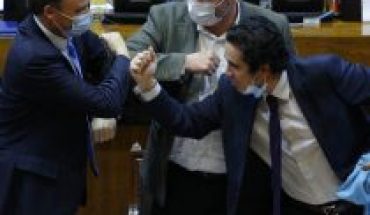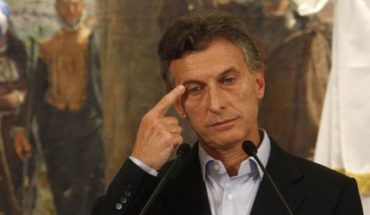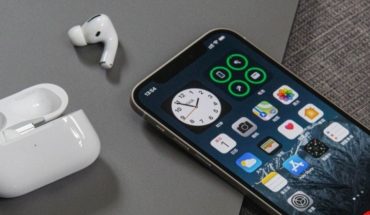In the midst of the health disaster due to the new coronavirus, the Peruvian Parliament was discussing on Friday the dismissal of President Martín Vizcarra following the dissemination of audios where he coordinated the defense of an investigation into his environment by the state procurement of an acquaintance of his acquaintance. The crisis exploded on Thursday with the broadcast of three audios and on Friday, without a solid investigation, Congress had already decided by 65 votes in favor of starting a debate to decide in the coming days whether the representative was dismissed. At least 52 votes were required by law. Vizcarra said early, from a university where pharmaceutical company Sinopharm experiences phase three of a vaccine against the virus, that a plot had been “hatched to destabilize democracy.” He added that he would not resign, as did his predecessor Pedro Pablo Kuczynski in 2018, of whom he was vice-president. Steve Levitsky, a professor of political science at Harvard University, told The Associated Press that congressional decision was “disastrous” and that Peruvian democracy is “unfortunately sinking further and deeply into a crisis” in a country where hundreds die every day from the virus. The 130-member Congress must now add up to 87 votes to dismiss the president between Tuesday 15 and 22 September, but MPs could speed up the final vote if they manage to gather 104 votes. In the proceedings, the president or his or her attorney may intervene for an hour. A parliamentary committee and the prosecution investigate how an acquaintance of the president, named Richard Cisneros, was hired nine times between 2018 and 2020 for which he was paid $49,500. The MP Edgar Alarcón, who broadcast the audios and heads the commission investigating the recruitment of Cisneros, says that Vizcarra must be dismissed for moral incapacity. The legislators suggest that Vizcarra would have favored Cisneros in the procurements carried out at the Ministry of Culture to provide motivational talks to officials to improve their performance during the pandemic. The president denies it with emphasis. The matter is unclear and no parliamentarian has stated what offences Vizcarra would have committed to be dismissed. According to one audio, Vizcarra and three nearby officials discuss how many times Mr. Cisneros entered the presidential palace. Vizcarra says that through emails it is known that he entered five times, but he only remembers twice.” It must be said that he entered twice,” says Vizcarra in the audios in reference to Cisneros. That phrase has been interpreted as an attempted lie to justice by his opponents. Cisneros, a little-known 52-year-old singer in Peru, met Biscay during Kuczynski’s presidential campaign. Cisneros is heard in another broadcast audio chatting with a secretary of Biscay without saying anything transcendent, but on Friday he said that it had been recorded for use in a “conspiracy” and accused that behind everything was the legislator Alarcón, who broadcast the audios.” There has been no investigation… the dismissal of the president is a very important matter and requires serious deliberation, public debate and investigation. There hasn’t been any of that,” said Levitsky, a scholar of Peruvian politics. Transparency International said in a statement that the investigation into audios listening to the president should be investigated according to the law, “respecting the constitutional norm that the president cannot be charged during his tenure.” The presidential dismissal process has been the third since 2016. Former President Pedro Pablo Kuczynski was submitted twice and resigned in March 2018 shortly before he was put to a vote. It was replaced by Biscay, who was its vice president. If Vizcarra is to overcome the attempted dismissal, it will complete its management in July 2021.
translated from Spanish: Peru’s opposition congress approves start of process to dismiss President Martín Vizcarra
September 11, 2020 |




![translated from Spanish: [VIDEO] Sergio Vargas and the criticism of his management: “If we had made bad decisions we would have gone to relegation” translated from Spanish: [VIDEO] Sergio Vargas and the criticism of his management: “If we had made bad decisions we would have gone to relegation”](https://ananoticias.com/wp-content/uploads/2021/08/translated-from-Spanish-VIDEO-Sergio-Vargas-and-the-criticism-of-370x215.jpg)
